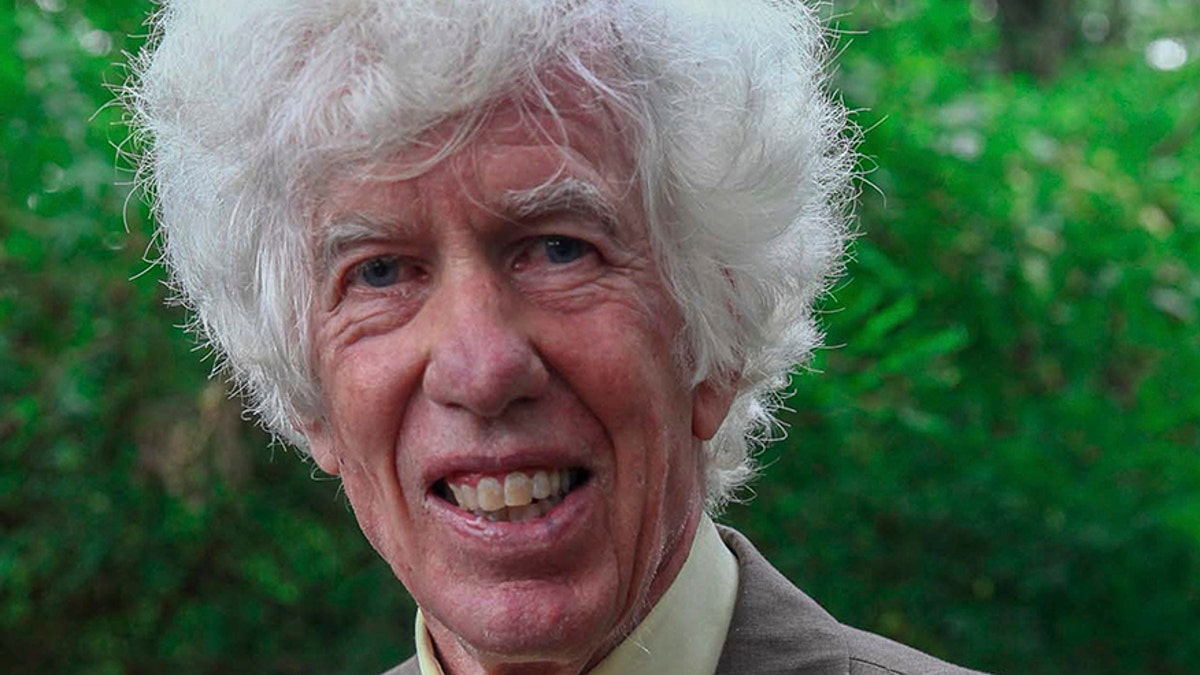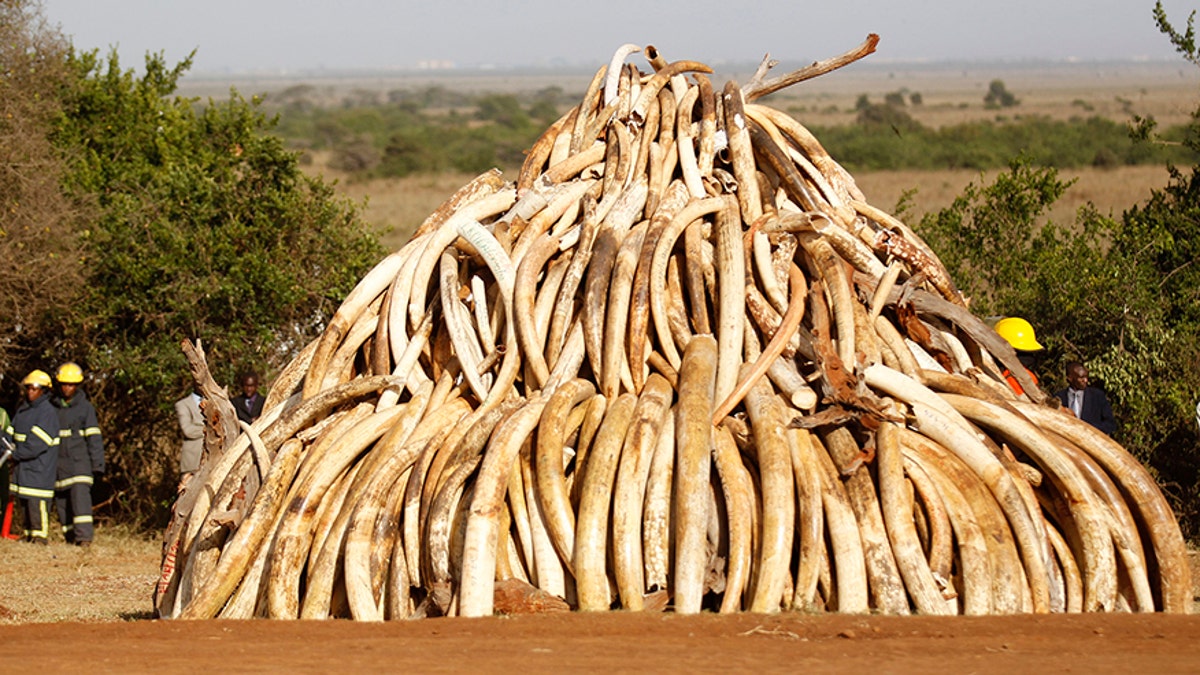
In this Feb. 8, 2016 file photo, Esmond Bradley Martin, an expert on the illegal ivory trade, attends a news conference at his home in Nairobi, Kenya. (AP)
An American investigator trying to shed light on the notorious underground ivory trade threatening elephants and rhinos with extinction worldwide was found stabbed to death in his home in Kenya.
A family member went to Esmond Bradley Martin's house Sunday to check on him after he did not respond to phone calls and found the body on a bed with a stab wound to the neck, Nicolas Kamwende, head of criminal investigations in Nairobi, said Monday.
Martin, a former U.N. special envoy for rhino conservation, had recently returned from a research trip to Burma and was in the process of writing up his findings, the BBC reported.
The 75-year-old was known for his undercover work investigating the ivory trade, and had risked his life to document illegal sales in far-flung corners of the globe. Martin would pose as a buyer and obtain details of black market prices, the BBC reported.
Conservationist Paula Kahumbu told the Associated Press that Martin was at the forefront of exposing ivory traffickers in the U.S., Congo, Vietnam, Nigeria, Angola, China and recently Burma.
Police are investigating Martin’s death as a botched robbery, according to the BBC, which said he first went to Kenya in the 1970s during a surge in elephant killings.
"A passionate and committed man who made a big difference to our planet. May he rest in peace," British High Commissioner to Kenya Nic Hailey said in a Twitter post.
"Esmond was a true giant of conservation and a champion for African elephants and rhinos," U.S. Ambassador to Kenya Robert Godec said in a statement. "His extraordinary research had a profound impact and advanced efforts to combat illegal wildlife trafficking across the planet."
Conservation group Save the Elephants described Martin as "a longtime ally," a passionate champion of wildlife and meticulous researcher.
Illicit demand for elephant ivory has led to devastating losses from illegal poaching as the natural habitat available for the animals to roam has also dwindled by more than half, according to the Associated Press. As a result, the number of African elephants has shrunk from about 5 million a century ago to about 400,000 today. And that number continues to decline each year.

March 3, 2015: A pile of 15 tons of ivory confiscated from smugglers and poachers is arranged before being burnt to mark World Wildlife Day at the Nairobi National Park. (Reuters)
The tusks fetch huge sums of money in black markets.
In January, Thai authorities seized 326 pounds of African elephant ivory, including three large tusks worth around $469,800 from a Bangkok airport, the Associated Press reported.
Less than 30,000 rhinos also are estimated to remain in the wild due to poaching.
The price of rhino horn skyrocketed as demand has grown in Asian countries, mainly China and Vietnam, where consumers believe that the horn made of the same substance as fingernails has powerful healing properties. The price was believed to be at its highest in 2012, when it was worth around $65,000 per kilogram (2.2 pounds), The Guardian reported.
In an interview with National Public Radio in 2007, Martin said his greatest contribution academically to conservationism would be to show that except for one small area in India, rhino horn has never been used by Asians for sexual purposes.
Martin Mulama, a rhino expert with the WWF conservation group and former Kenyan government official who worked with Martin, said the American did the legwork to prove rumors about the illegal wildlife trade, thereby encouraging officials to take action.
"He tried to unearth some of these difficult things," Mulama said. "He would actually come with evidence to show that this is actually happening."
The Associated Press contributed to this report.
